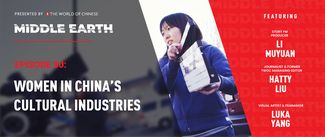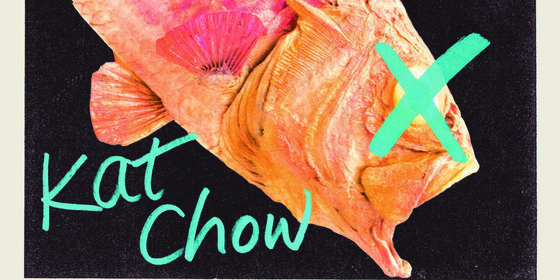Yu Xiuhua’s “Moonlight Rests on My Left Palm” is a celebration of the power of straight-talking
“Fucking you and being fucked by you are quite the same,” opens Moonlight Rests on My Left Palm, the first anthology of Chinese poet Yu Xiuhua (余秀华) to be published in English, translated by Fiona Sze-Lorrain.
The line is tinged with novelty. The poem from which it is taken, “Crossing Half of China to Fuck You,” went viral in November 2014 when a national poetry magazine published it on the Chinese messaging app WeChat, reportedly attracting over 1 million shares and bringing Yu to public attention. Although other translators have previously rendered the poem in English, Sze-Lorrain is the first to directly use the word “fuck” instead of the coyer “sleep with” or “lie with.”
The word choice echoes the deliberate vulgarity and delicate rawness that permeate all of Yu’s poetry. While the euphemism 睡 (literally, “sleep”) is not an obscenity in Chinese, it carries a certain coarseness in a society where public discussions of sexuality are still not widely accepted. Soon after it went viral, “Crossing” was labeled “slut poetry” by some internet users who felt ill-at-ease with such candid expressions of sexuality from Yu, a rural woman with cerebral palsy. But behind the poem’s title lies both an emotional world that is down-to-earth and writing style that is incredibly perceptive.
“I penetrate a hail of bullets to fuck you / I press countless dark nights into one dawn to fuck you / I, as many, run as one to fuck you...” Within a few lines, the poem becomes the story of a person striving to affirm her existence by connecting with another, no matter how frivolously. We digest Yu’s imagery, and with it, discover a poet who shatters and fuses claims to sexuality in an almost self-empowering way; who embraces the possibility of promiscuity through words. We see that for Yu, poetry is not about packaging thoughts and feelings, but about stripping away pretense, leaving life naked and raw.
Yu wrote her first poem, “Imprinting,” in 1998. She was just 22 years old, had lived her entire life in a small village in central China’s Hubei province, and had entered into an arranged marriage as a teenager. Yu’s disability made her unsuited for farming life, but she found an outlet through poetry, a literary genre whose tendency toward brevity stops her from overexerting herself. “Much as society might contaminate my mind, poetry cleanses me with compassion,” she writes in an essay that also appears in Moonlight.
The poems that follow “Crossing” continue to dazzle with their rich imagery and surprising juxtapositions. “Softly I sway in water / carry luminous words at the tip of grass,” she writes in “A Pool of Water.” Yu’s expressions are unembroidered, eschewing the rules of poetry and the impulse of many poets to dress up their words in smart turns of phrase. Yet they are always anchored in a simple time and place—often her village or her body—and are imaginative and free enough to fill the reader with envy.
The Raw and Unabashed Poetry of Yu Xiuhua | Book Review is a story from our issue, “Upstaged.” To read the entire issue, become a subscriber and receive the full magazine. Alternatively, you can purchase the digital version from the App Store.














